India’s economic regulator for the media sector Telecom Regulatory Authority of India (TRAI) has issued the Telecommunication (Broadcasting and Cable) Services Interconnection (Addressable Systems) (Third Amendment) Regulations 2021 on June 11, 2021.
On first reading of the interconnection guidelines, the changes look simple and straightforward — innocuous one can say. But, as they say, the devil is always in the fine print.
The guidelines highlights are the following:
- No direct activation to be allowed from CAS; all the execution of command to be routed through the SMS (subscriber management system).
- On a subscriber being deactivated, all the channels, including FTA, need to be deactivated on the STB. This action is to take place via SMS. However this comes with a rider — the set-top-box should have the capability to provide the information on recharge.
- CAS will not support the carriage of the same channel on dual LCN.
- In case of a hybrid STB, the CAS shall ensure that OTT app does get access to a linear channel.
- The CAS and SMS have to be synchronized and there should be records of mismatch between CAS and SMS on a periodic basis, and those records made available during the audit process.
- SMS should have provision to calculate the revenue sharing between DPO and LCO, distribution fee as well as NCF (network fee).
These are standard elements of a good SMS and CAS, but still may need some tweaking by a few DPOs to include all the elements in their systems. The efforts are to ensure that actual numbers come out, which will help the value chain get its rightful share.
It is important to go through the explanatory memorandum to the Interconnect Regulations 2021 where deeper changes are planned and envisaged.
The mention that there is a consistent issue of the CAS and SMS providers not being able to provide the service to keep pace with changing business and regulations is important. The digital systems can only be successful if all the elements in the chain work in tandem and are able to address the business and regulatory needs. Hence, the chain is as weak or as strong as any one link, and fragility in any one unit can cause problems in the whole system.
The changes will need intervention of the SMS and CAS providers or, in some cases, the STB manufacturer to meet the requirements of the interconnect regulations. It will be worth seeing how a DPO, which has services from low-cost service providers, would be able to support the changes.
TRAI proposes to form a committee of stakeholders for review/ updating of the framework of CAS/SMS (refer Para 29 of explanatory memorandum). One hopes this panel includes representatives from all tiers of DPOs, as it is the small DPOs who face maximum heat from the changes in implementation criteria.
In Para 47, TRAI has mentioned designating testing and certification Agencies for CAS and SMS. Based on the consultation with these agencies, a test schedule will be released and then the accredited testing laboratories will be empaneled to carry out such tests.
It seems that we are looking at multi-tiered structure that will be adding to the costs of the whole process of accreditation, which will be passed on to the DPO ultimately.
There are a limited number of the CAS and SMS providers and TRAI needs to have a hands-off approach vis-a-vis the testing labs. Accreditation by TRAI will lead to mushrooming of the so-called labs, which will, again, add to the cost of a DPO who is already paying for auditors. Ideally, CAS, SMS and STB providers should be made to pay for these testing agencies if they wish to do business in India. They will use the accreditation in the sale of their products in multiple markets.
TRAI should allow DPOs and broadcasters to develop their own set of testing agencies and rate them in terms of the reliability. The Farncombe example given by TRAI is good, but there are more like those. For example, there’s Eurofin. Industry should have the freedom to choose with whom they work with and let the service providers compete to provide the best solution.
The regulator now needs to be an observer and should intervene only in case of a system failure.
The real need is to get the CAS, SMS and STB providers to be responsible for providing the required updates and keep supporting the changes required by regulators and businesses.
This aspect needs immediate attention; else the DPO will be burdened with more costs and penalties.
We hope this will be addressed once the committee is formed by TRAI to continuously update the requirements for CAS, SMS and STBs and the committee will take a well-thought of steps to address the requirements.
Much action could be seen in the coming days.
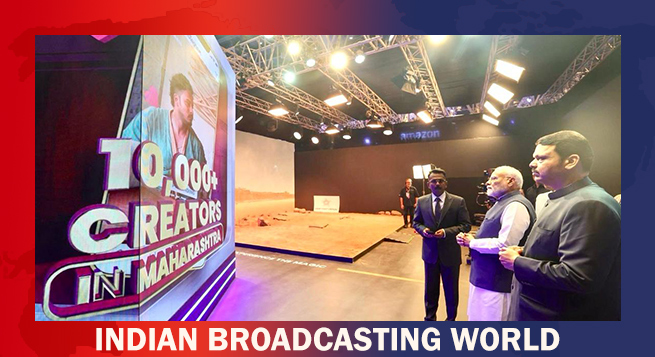 MIB to unveil M&E sector statistical handbook today at WAVES
MIB to unveil M&E sector statistical handbook today at WAVES 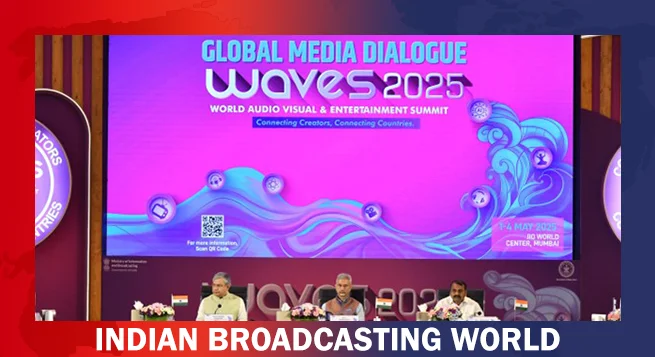 WAVES 2025: Media dialogue backs creativity, heritage & ethics in AI Era
WAVES 2025: Media dialogue backs creativity, heritage & ethics in AI Era 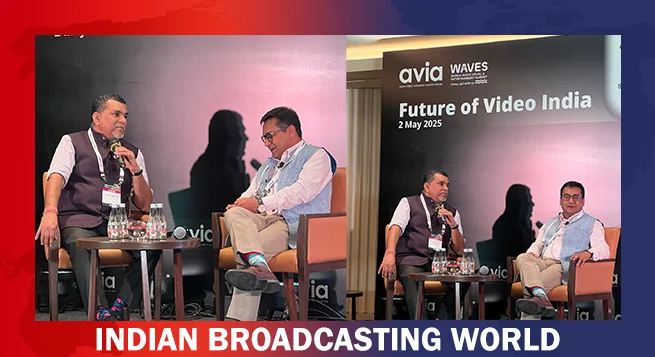 Pay TV leaders chart course for India’s linear TV in digital age
Pay TV leaders chart course for India’s linear TV in digital age 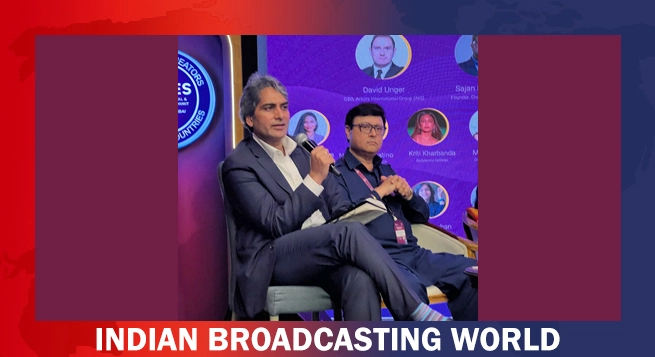 Sudhir Chaudhary announces new show for DD News, says “Good content still has a place” at WAVES 2025
Sudhir Chaudhary announces new show for DD News, says “Good content still has a place” at WAVES 2025 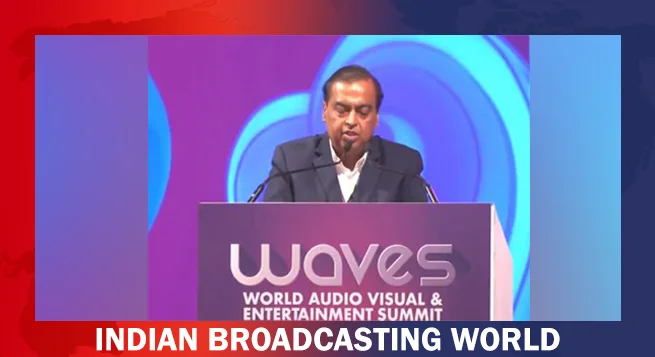 India can lead global entertainment revolution: Mukesh Ambani
India can lead global entertainment revolution: Mukesh Ambani 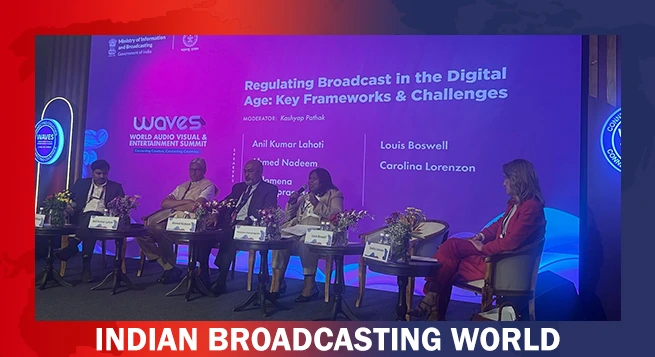 TRAI chief not in favour of separate rules for OTT, legacy b’casters
TRAI chief not in favour of separate rules for OTT, legacy b’casters 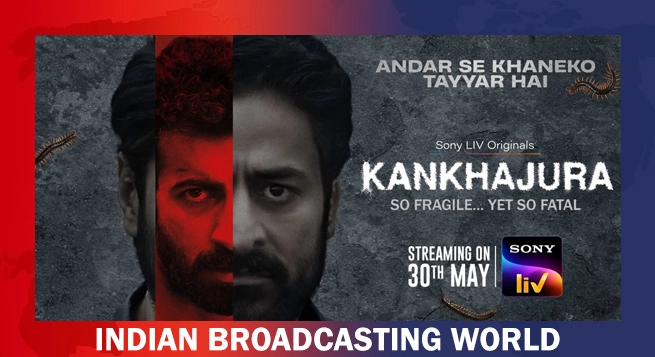 ‘KanKhajura’ start streaming on Sony LIV from May 30
‘KanKhajura’ start streaming on Sony LIV from May 30 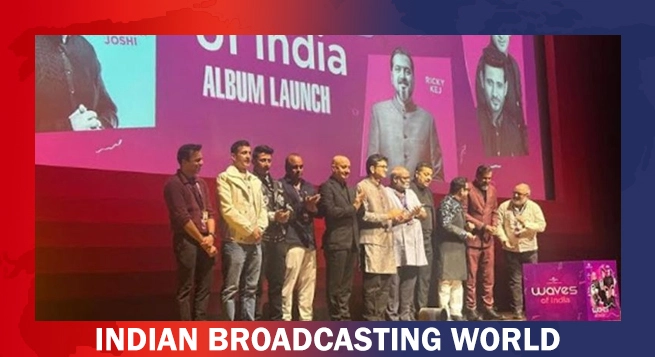 Koyal.AI debuts at WAVES 2025, set to revolutionise music videos with GenAI
Koyal.AI debuts at WAVES 2025, set to revolutionise music videos with GenAI 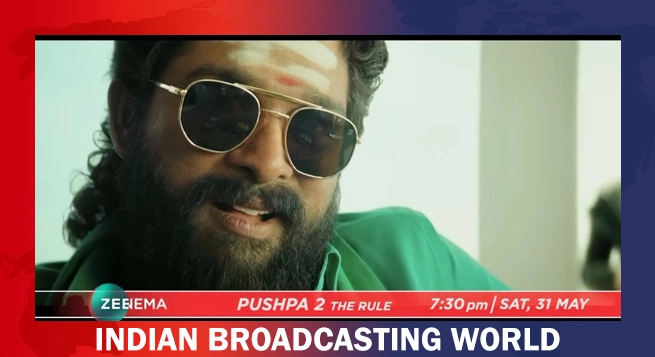 Zee Cinema to premiere ‘Pushpa 2: The Rule’ on May 31
Zee Cinema to premiere ‘Pushpa 2: The Rule’ on May 31 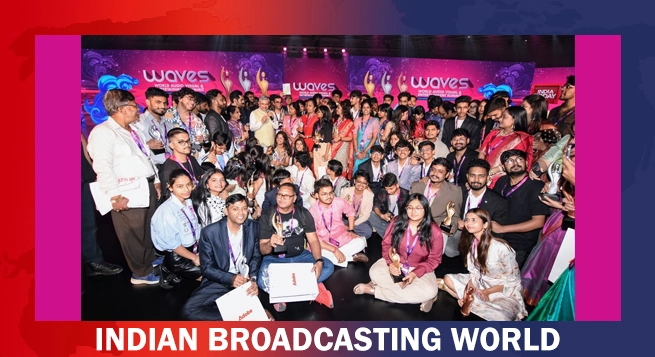 ‘Create in India Challenge’ S1 honours global talent at WAVES
‘Create in India Challenge’ S1 honours global talent at WAVES 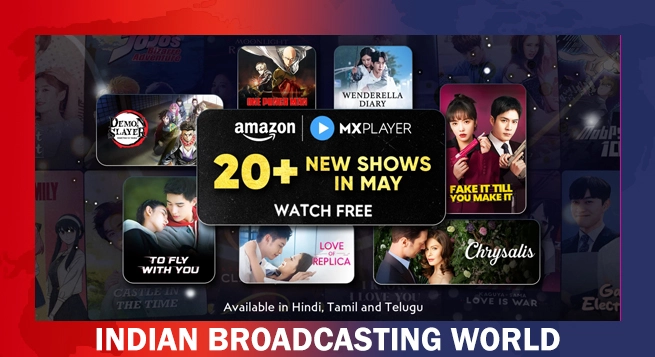 Amazon MX Player adds 20+ dubbed international titles
Amazon MX Player adds 20+ dubbed international titles 








